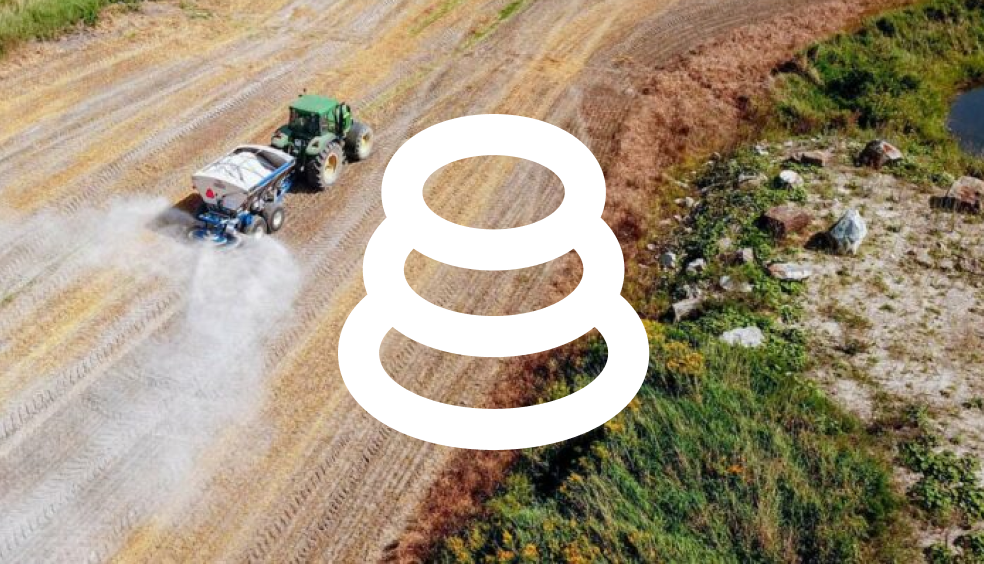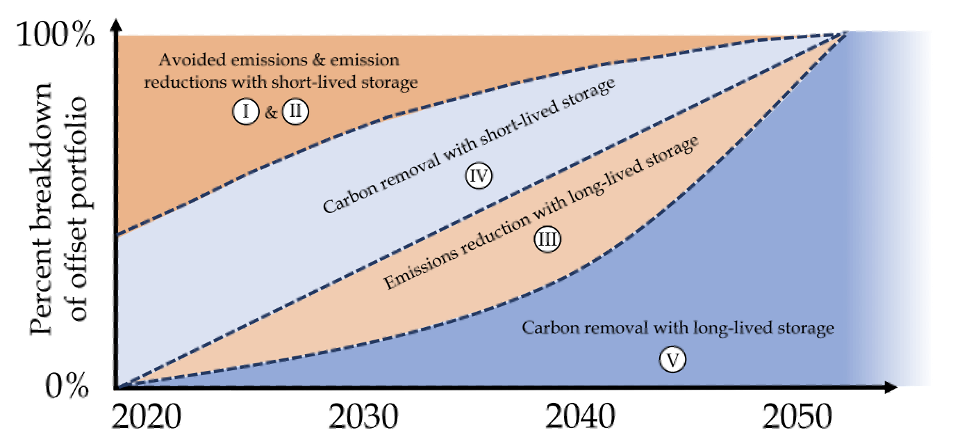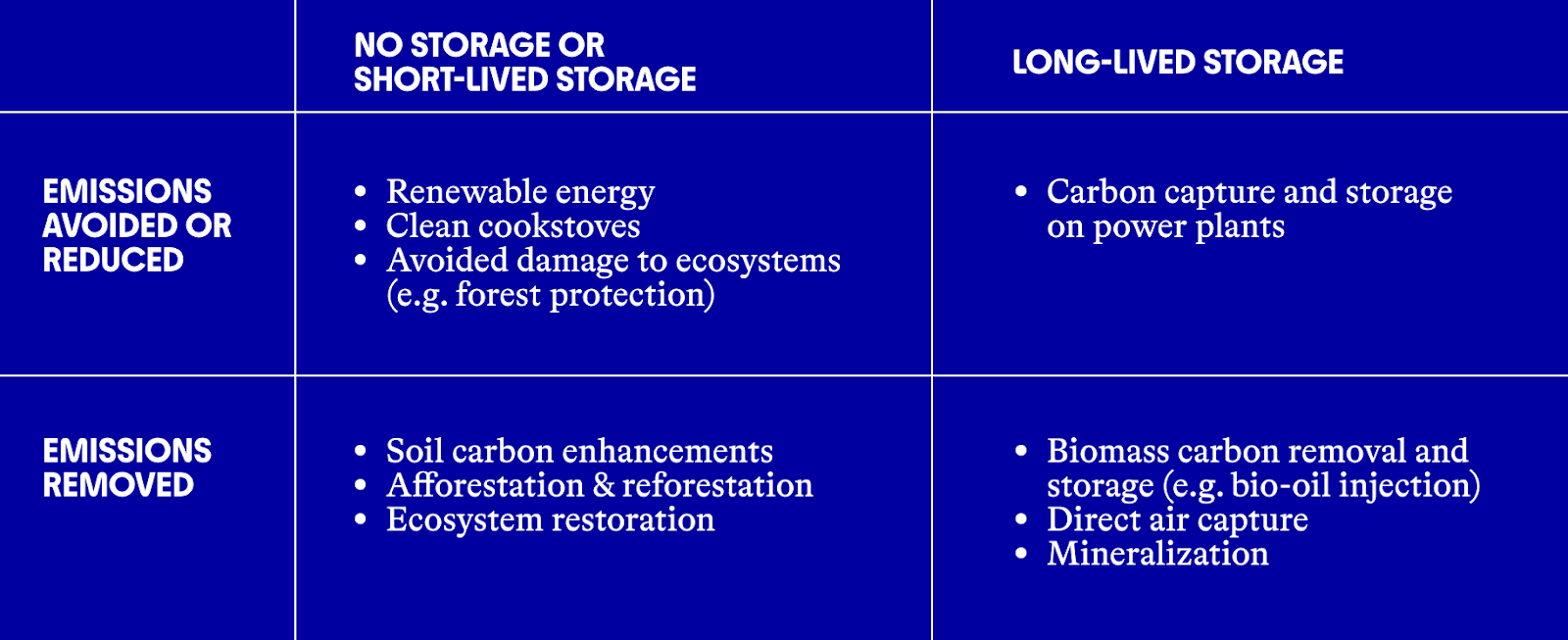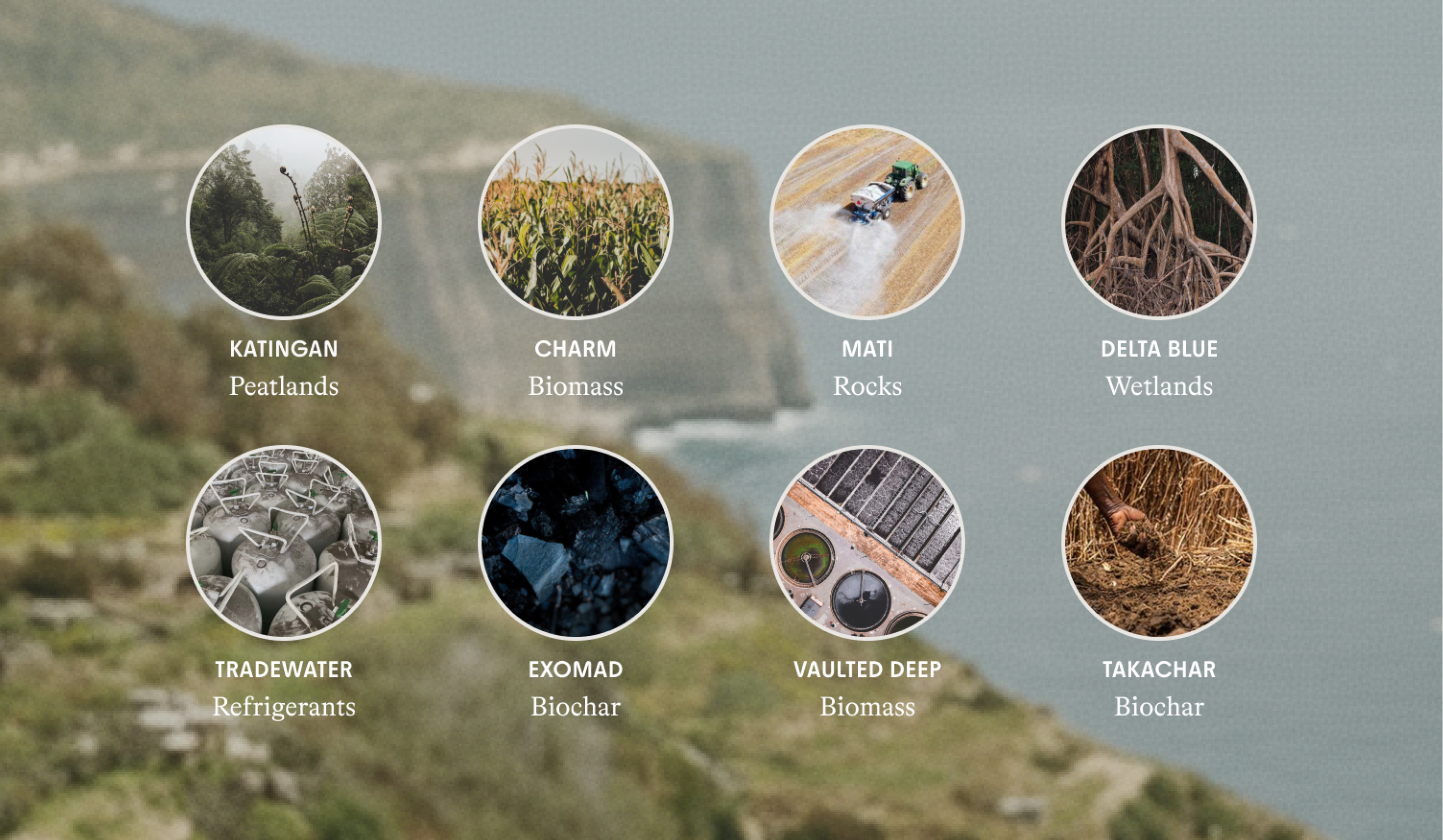The Commons Offset Portfolio

Join the community





Last updated on Oct 3, 2025.
Throughout the year, our carbon experts evaluate new offset projects to ensure we are sourcing the best ones on the market for the Commons community to support. Our team is skeptical of offsets, and we know they’re not all created equal.
Just like you wouldn’t put all your money into one stock, we don’t put your whole offset into a single project. We curate a portfolio of projects that not only reduce and remove carbon, but also prioritize innovation, scalability, and environmental justice.
The Commons Offset Portfolio: Vetted Avoidance and Removals Partners
Our providers protect and restore forests, capture and destroy potent greenhouse gases, and even sequester carbon-rich bio-oils deep underground. To learn more about how carbon removals work in practice, see our biomass and forestry primers.

Katingan Peatlands
Protecting and restoring tropical peatlands while benefiting communities and ecosystems
Learn more →

Charm Industrial
Permanently storing carbon-rich bio-oils deep underground
Learn more →

Tradewater
Collecting and destroying the world's most potent greenhouse gases
Learn more →

Delta Blue Carbon
Restoring mangrove forests to scale coastal carbon sinks
Learn more →

Mati Carbon
Permanently capturing carbon using enhanced rock weathering
Learn more →

Takachar
Helping farmers convert waste into carbon-rich, verifiable biochar
Learn more →

Vaulted Deep
Injecting carbon-rich waste deep underground to store permanently
Learn more →

Exomad Green
Turning forestry waste into biochar to sequester carbon and enrich soils
Learn more →
A Portfolio-Based Offsetting Strategy
It’s possible to avoid the worst effects of the climate crisis if we act quickly to reach net zero emissions by 2050. The International Panel on Climate Change’s 2018 Special Report, however, made clear that no single climate solution - be it forestry, batteries, green buildings, or direct air capture - will be enough to get us there. We need a broad arsenal of climate solutions, and we need them ASAP.
Over the next 25 years, the global community needs to balance investments in cost-efficient solutions that avoid, reduce, or remove carbon now (e.g., forestry, mangroves) with longer-term, pricier solutions that store and sequester carbon permanently (e.g. biomass carbon removal and storage, enhanced rock weathering).
The Oxford Principles for Net Zero Aligned Offsetting present a framework for how to support carbon reduction now, while intentionally shifting towards carbon removal with long-lived storage by mid-century. The Principles suggest that supporting a portfolio of projects that balances carbon reduction and removal is the best way to achieve this. Avoided or reduced emissions without storage tend to be the cheapest projects (e.g. clean cookstoves, renewable energy), while carbon removal with long-lived storage is currently the most expensive (e.g. direct air capture, mineralization).

Examples of each project type include:

You can support the solutions we need to achieve net zero.
The Commons Offset Portfolio allows you to buy into a carefully blended selection of climate solutions that align with the Oxford Principles to get our world to net zero emissions by 2050. Our Portfolio, balanced across forestry, soil, and innovative carbon removal, supports vetted projects at an overall price of $35 per ton (including a 20% Commons fee for sourcing, evaluating, and monitoring projects). Over time, Commons will update our portfolio to achieve a balance that continues to shift toward long-lived storage.
Companies at the forefront of carbon removal investments, like Microsoft and Shopify, have used a similar approach to frame their large-scale carbon removal purchases and bought into many of the same projects as Commons. The Commons Offset Portfolio makes this high-impact approach to offsetting available to regular people, by aggregating demand and doing the same kind of in-depth research and monitoring that larger companies do, on behalf of all of us.
Commons' Rigorous Offset Evaluation Process
The offset projects selected by Commons are backed by evidence and analysis. To evaluate projects, our team conducts our own meticulous research, consults third-party analyses, and engages with experts to ensure they meet the following criteria.
First, we screen carbon offset and removal projects for carbon integrity. Projects must, at their core, actually reduce or remove the carbon they claim to. Our Carbon Integrity criteria include:
- Verifiability: The carbon reduction or removal must be measured and rigorously evaluated by a trustworthy, independent third party.
- Enforceability: Credits must be backed by a contract that defines exclusive ownership. The offset vendor must provide evidence that the carbon credits issued from a project are sold once and retired.
- Additionality: A project must demonstrate strong evidence that it is not taking credit for carbon reduction or removal that would have occurred anyways, without the project.
- Permanence: To stabilize atmospheric concentrations of greenhouse gases, long-term carbon removal and storage is critical. Commons is curating a selection of projects that balance short-term and long-term carbon storage.
- Transparency: We seek to work with partners that demonstrate operational transparency, and provide specific, clear, well-documented evidence of carbon reduction and removal.
Second, we prioritize projects with transformative potential. Addressing the climate crisis will require fundamentally transforming our markets and society. We prefer projects that improve the state of carbon markets and contribute to creating a world for all life to thrive. Our Transformative Potential criteria include:
- Market Efficiency: Commons favors options that provide a higher percent of overall cost to project owners, to support a more efficient and direct market.
- Scalability: Commons favors scalable projects that can meaningfully contribute to reaching global “Drawdown” by 2050 — when levels of greenhouse gases in the atmosphere stop climbing and start to steadily decline.
- Catalytic Potential: Commons prioritizes projects that advance innovation, demonstrate replicability, and inspire similar future projects.
- Ecosystem Benefits: We support projects that create benefits to natural ecosystems beyond carbon reduction, including conservation, biodiversity, and climate adaptation.
- Community Benefits: The climate crisis presents enormous equity and justice challenges. We prioritize projects that will benefit the poorest and most vulnerable populations who are affected most by changing climates.
Offsets Complement Behavior Change and Accelerate the Transition to a Sustainable Future.
The best way to move to a low-carbon future is to build a society that uses less fossil fuels. It is critical that we prioritize cutting our own emissions wherever we can. Commons help people shift their spending to more sustainable products and services, delivering an important signal that we demand cleaner options.
However, for as long as we live in a fossil-fueled society, there will always be a portion of emissions that we cannot reduce on our own. Paying for high-quality carbon reduction and removal can play an important role in creating demand for much-needed climate solutions. And by supporting the Commons Offset Portfolio, our community can enable emissions reduction and removal beyond what we can achieve on our own.













